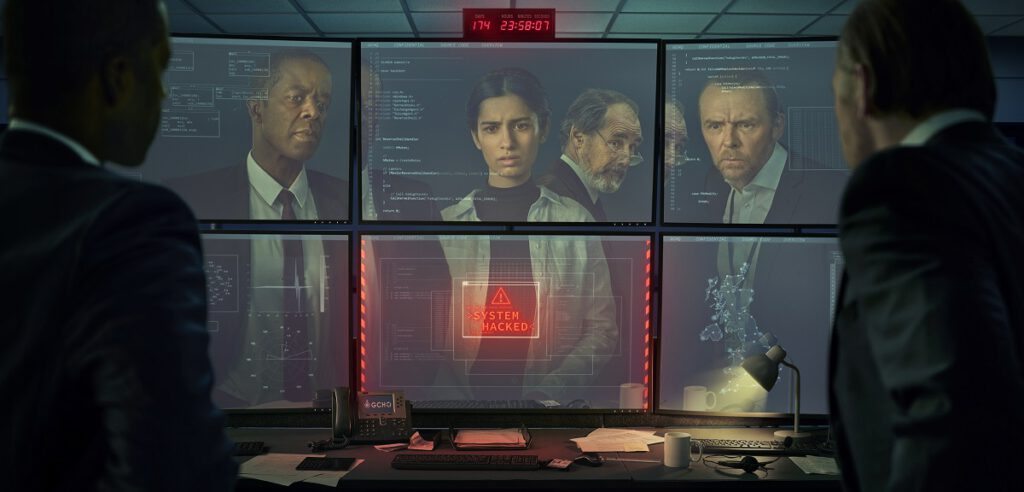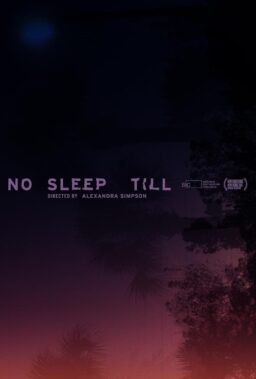“The Undeclared War,” which premiered on Channel 4 in the U.K. earlier this Summer and lands on Peacock starting this week in the States, is well-intentioned, well-researched, and, well, boring. It is an often-dull look at the new frontier of international conflict: the cyber one. Creator Peter Kosminsky clearly did his homework, digging into how men and women sitting in front of keyboards are really on the frontlines of battles that are shaping not just the way that powerful countries work with each other but everyday life around the world. This densely detailed show eventually gets someplace chilling in its final episodes as it centers not just cyber warfare but the way that technology and social media can shape political perception. But the first half of this six-chapter series has a tendency to drag, in part because efforts to explore the personal lives of the characters caught up in this cyber-drama are sometimes shallow and disingenuous. The brilliant Mark Rylance pops up in an effective supporting role and the show has something to say about broken political and tech systems that infect each other with their own kind of viruses, but this is a near-miss in the battle for cyber-awareness.
One of the problems is that the majority of “The Undeclared War” is seen through the eyes of a dull protagonist, a young work experience student named Saara (Hannah Khalique-Brown) who shows up at GCHQ (Government communications Headquarters) on the day that someone attacks the U.K. tech system. She’s a woefully underwritten character from the beginning, a writer’s device—the quiet new girl who can solve problems in a way that the traditional structure cannot—instead of a real person. And efforts to fill out her character with a family tragedy and a relationship at her new job are shallow and manipulative, in part because Khalique-Brown can’t get a handle on Saara, someone who seems mostly apathetic to what’s happening around her when she’s not being used by the writers. There’s a version of “The Undeclared War” that doesn’t rely so heavily on a character that’s so flatly conceived and executed.

The world-changing developments into which Saara stumbles start with that attack, which seem pretty bad—air travel stopped, some networks went down—but not the end of the world. As GCHQ and the relatively new Prime Minister (Adrian Lester) try to track down the source of the attack (and presume Russia), Saara discovers that it was just the beginning. There’s another timed attack in the malware, set to devastate the U.K. much more thoroughly, and then she finds an even deeper embedded message, continuing her journey through this tech wonderland.
Kosminsky steps away from Saara’s journey at times to paint a bigger picture of what’s at play in powerful countries around the world; he gets his most interesting mileage when unpacking how sock puppets, bots, and deliberate peddlers of misinformation are shaping not just perception but action. Saara’s boyfriend James (Edward Holcroft) is a part of a protest movement that doesn’t even realize how much it’s being shaped by misinformation. Kosminsky also spends time with a Russian journalist who is literally being used as a propaganda mouthpiece by her corrupt government.
Of course, Saara also has colleagues, including a charismatic American named Kathy (Maisie Richardson-Sellers), a father figure named John (Mark Rylance), and a brilliant boss named Danny (Simon Pegg, doing subtle dramatic work). A relationship forms with Kathy that feels incredibly forced, and a figure from Saara’s past ends up playing a major role in the looming crisis. These are the kind of manufactured developments that damage the overall veracity of “The Undeclared War,” a project that has clearly been carefully vetted for realism in the tech half of the show but somehow forgot to seek the same in the human half.
Luckily, the “bigger” issues of “The Undeclared War” naturally take center stage as it progresses, culminating in a fifth episode that’s downright chilling as it unpacks how these events could alter world history by destroying relationships between allies. The truth is that espionage and acts of war moved online years ago and the real-world parallels here to stolen elections, fake news, and Russian manipulation are all too believable. If only the human half of the show did too.
First season screened for review.












